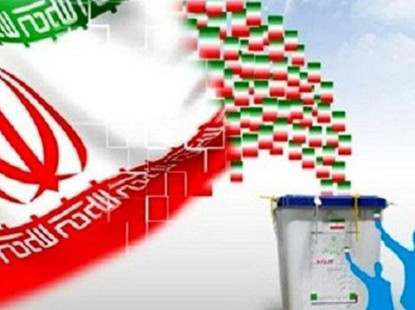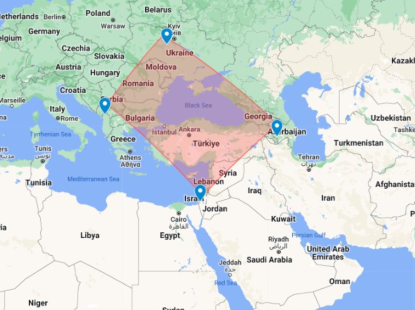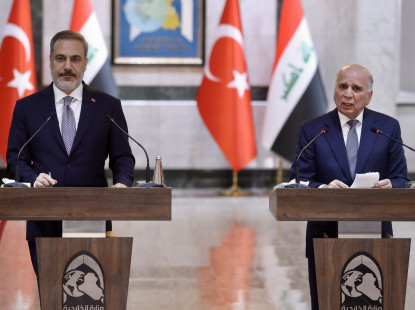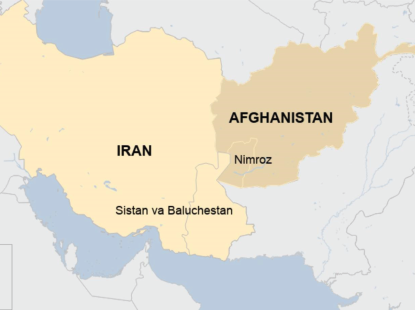Iran’s Financial Sector and the Sanctions
The main objective of the sanctions on Iran’s financial sector was to isolate the country from the international banking system in order to limit its access to the funds that could be used for proliferation and military activities. The pressure escalated with the exclusion of EU-sanctioned Iranian financial institutions from SWIFT’s messaging system in March 2012 and of some Iranian banks in November 2018, albeit in different circumstances. This step harmed Iran’s ability to conduct foreign trade and money transfers forcing it to seek alternative options. Practically all sectors of the country’s economy have experienced serious difficulties in their financial operations, which has opened the door for a wide array of sanctions evasion schemes – some were large-scale and sophisticated and involved the help of state authorities while others were designed to cover the basic needs of smaller players in the economy.
According to the April 2021 edition of the U.S. Congressional Service Report on the Sanctions on Iran, between 2006 and 2016, the USA invested significant efforts to discourage other countries and international financial institutions from processing transactions of Iranian subjects. The message was that Iran was involved in sponsoring terrorist groups and nuclear proliferation, and dealing with its financial institutions posed serious regulatory risk.
U.S. banks have been banned from having direct relations with Iranian counterparties since the 90s. A licensing regime allowed the so-called U-turn transactions, which permitted dollar-denominated transfers on behalf of Iran under the condition that they were initiated by a non-Iranian, non-U.S. financial institution and only passed through the U.S. financial system en route to another offshore, non-Iranian, non-U.S. financial institution. This exception was revoked in November 2008. By then, U.S. authorities had already sanctioned major Iranian banks such as Bank Melli, Bank Mellat, Bank Sepah and Saderat. All of them are currently subject to secondary sanctions, which means that even persons from third countries (non-U.S. and non-Iranian) that interact with them could be penalized by U.S. regulators.
The U.S. campaign to limit Iran’s access to funds was not isolated. Up until the signature of the Joint Comprehensive Plan of Action (JCPOA), Iran’s financial sector was subjected to concerted pressure by international institutions such as the UN and the Financial Action Task Force (FATF), and the European Union (EU). UN Security Council Resolution 1747 (2007) designated Bank Sepah for its support for the Iranian Aerospace Industries Organization while Resolution 1803 (2008) called for vigilance on the financial activities of banks domiciled in Iran, more specifically, Bank Melli and Bank Saderat, and their branches and subsidiaries abroad, because they could be contributing to proliferation or nuclear weapons delivery systems development.
The FATF, the inter-governmental body considered to be the standard-setter for anti-money laundering and counter-terrorist financing (AML/CTF) measures, has consistently expressed concerns that Iran has not implemented its recommendations and has deficiencies that make it a high-risk jurisdiction, particularly, with regard to terrorist financing. (Iran gives financial and military support to the organizations that are considered terrorist by some Western countries and has not ratified important international treaties on organized crime and terrorist financing). The FATF has sent a warning signal across the entire international financial system that financial institutions processing payments originating from Iran may become complicit in money laundering or terrorist financing operations. As a rule, FATF’s statements and designations are one of the key components of jurisdiction risk assessment and they have significant impact on how a country is perceived by investors, businesses and other stakeholders. To this day, Iran has not met FATF standards. It is subject to countermeasures and the other countries are urged to apply enhanced due diligence when dealing with financial institutions based in Iran.
While the EU adopted restrictive measures on major Iranian banks, European banks continued conducting transactions with Iranian subjects. They did this in breach of – primarily – U.S. sanctions and were ultimately forced to pay fines or forfeit substantial amount of money. When EU sanctions were violated, the penalties imposed by the competent authorities of the relevant member states, were much lower than the ones levied by the U.S. authorities. For example, in 2012, HSBC, the British multinational banking and financial services group, was fined USD 1.9 billion for AML violations including allowing 25,000 transactions over seven years without reporting their connection to Iran. In 2015, German Commerzbank had to pay USD 1.45 billion for conducting transactions prohibited under the U.S. laws on behalf of the Sudanese and Iranian companies between 2002 and 2008.
There are a number of sanctions evasion methods applied by financial institutions. One of them is wire stripping – this happens when the bank deliberately leaves out or alters payment details concerning the sender/beneficiary and other identifiers such as address and country. Commerzbank used this technique. The chairperson of its internal audit division warned that the names of Iranian banks in payment messages were being “neutralized”. In a similar vein, the German bank made an agreement with an Iranian client that the latter would pay the U.S. beneficiaries with Commerzbank-issued checks that contained only the Iranian bank’s account number and address in London but not its name. HSBC also tampered with details in the payment documents of Iranian customers in order to avoid detection.
Additionally, Commerzbank used transactional relays to help Iranian shipping company IRISL get access to the U.S. financial system by routing payments through special purpose vehicles which were set up outside of Iran, did not have any obvious connection to it and were in fact controlled by IRISL, including the times when it was sanctioned by the U.S. authorities.
Another circumvention technique was the transfer of funds through hawala (known as havaleh in Persian) – the informal system that relies on the trust between money brokers who can be located in one jurisdiction or far apart and who move money without actually moving them. When transferring proceeds via hawala, Iranian businessmen interacted with counterparties in the United Kingdom, Turkey and Dubai and made sure that certain thresholds were applied in order not to raise doubts.
In recent years, alternative payment systems have emerged and provided Iranians with new opportunities to bypass the economic sanctions. One such company was Payment24, an online services business with offices in Tehran, Shiraz and Isfahan. It sold “packages”, which helped its clients buy and export software, software licenses and computer service from the U.S. companies in violation of the law. The packages included a PayPal account, a fake ID, a remote IP address from the United Arab Emirates, and a Visa gift card.
With the rise of cryptocurrencies, Iran turned to mining in order to gain cryptoassets that could be used for import payments and to decrease the negative effect of the U.S. sanctions. Private companies estimate that 4-5% of all Bitcoin mining today takes place in Iran.
It is worth noting that since the U.S. withdrawal from the JCPOA in May 2018, Iran has not been alone in its attempts to minimize the effect of the unilateral U.S. sanctions that were not only re-installed but also expanded and blocked nearly all opportunities for Iran’s economic reintegration and foreign investments. Following SWIFT’s suspension of services for some Iranian banks under pressure by the Trump administration, the EU-Iran Instrument in Support of Trade Exchanges (INSTEX) was established in January 2019 to facilitate non-U.S.-dollar and non-SWIFT transactions. As of September 2020, nine European states joined it. INSTEX functions as a clearing house that works with its Iranian counterpart, the Special Trade and Finance Instrument. Although this mechanism is considered to have generally failed to provide any relief for Iran (its first transaction for medical goods export was conducted in March 2020), it is a legal and open instrument to bypass U.S. sanctions and is a clear sign of the divergent positions of the EU and the USA regarding the future of the JCPOA and also the sanctions on Iran’s financial sector.
Iran has managed to evade the economic restrictions with the help of local and regional partners and many international companies that were primarily profit-driven or operating in less transparent jurisdictions with loose AML/CTF laws. U.S. regulators have sought to make the cost of sanctions violations high by imposing significant penalties but this has not prevented Iran from finding effective ways to resist the pressure. The future of the JCPOA will determine whether a more liberal regime will replace the limitations.











